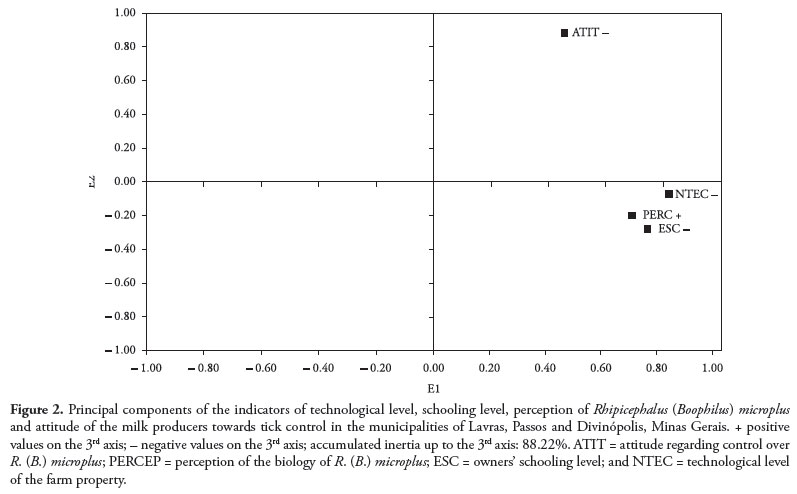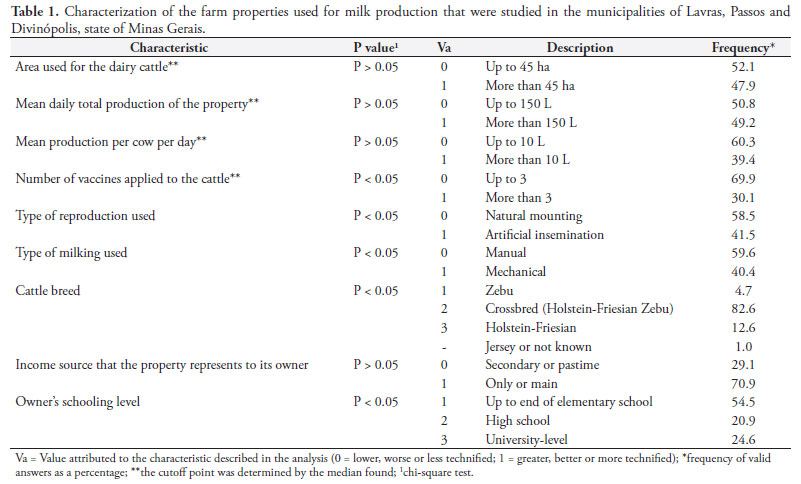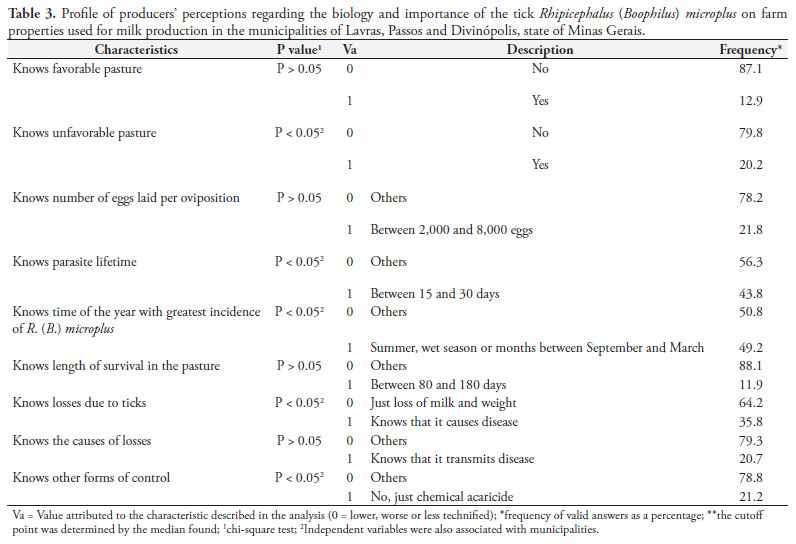Milk producers in Lavras, Passos and Divinópolis, Minas Gerais, were interviewed with the aim of evaluating their perceptions and attitudes regarding control over Rhipicephalus (Boophilus) microplus. Multivariate correlation between the variables was done by means of principal component analysis. The producers' perceptions and attitudes regarding R. (B.) microplus were similar: most of them did not have any basic knowledge of tick biology or control, and they applied acaricide products through backpack spraying, without any defined technical criteria. Some of the results obtained were: I. a negative correlation between schooling level and the frequency of spraying cattle with acaricides; II. a positive correlation between milk production, quality of equipment for acaricide application and technological level of the farm; III. farm properties with greater production and technification tended to keep the intervals between acaricide applications constant over the course of the year. After applying principal component analysis, a positive correlation was observed between schooling level, technological level of the farm and perceptions regarding R. (B.) microplus, but without any correlation with attitudes towards controlling this tick. It was concluded that higher technological level and schooling level improved the producers' perceptions relating to the biology of the tick R. (B.) microplus, but did not achieve effectiveness with regard to using controls more rationally.
Ixodidiosis; perception; cattle-rearing; Minas Gerais






